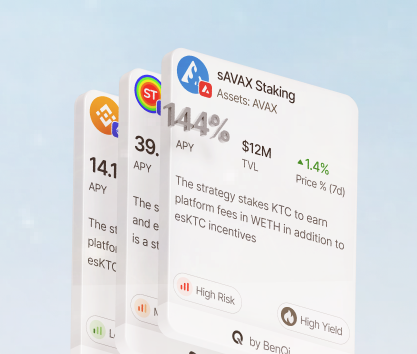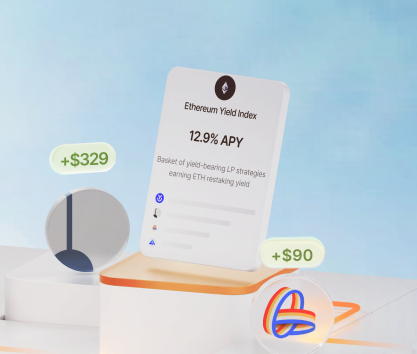The use of various agentic AI products in areas where many believed automation is impossible is ramping up due to the interest from investors in the general concept of artificial intelligence. In 2023, the AI market size was estimated at $196 billion, according to Grand View Research. Just a year later, it grew to $290 billion.
Intelligent agents in AI are very interesting as they have a special place in the industry and can be quickly implemented in a variety of ways to enhance certain aspects of service. The rapid evolution of the technology fueled by the eagerness of venture capitalists led to the introduction of new use cases and quicker adoption of established ideas.
The current range of applications of intelligent agents is very wide thanks to the existence of various types:
- Simple Reflex System is a very simple system that operates based on a set of strict rules. It emulates a reflex that any basic intelligence develops naturally. For instance, it can be activated by a sensor to execute a task like automatically opening doors when fire or smoke is detected inside a building.
- Model-based Reflex Systems operate similarly but have a much wider field of operation and more freedom in how they can react to certain stimuli. It is a perfect example of how technological advancements influence the development of intelligent agents. Many overengineered robot-vacuums are MBR systems as they use lidar, motion sensors, and other tools to navigate a complicated environment.
- Goal-based systems are ideal representations of agentic AI. These systems have objectives and must achieve them through any means possible. These agents can gather and analyze data, create subtasks, and do all sorts of other things to achieve their ultimate goals. Here, the role of interdisciplinary collaboration in the success of intelligent agents is undeniable, as machine learning requires high-quality data, robust coding, and expertise from multiple fields to work efficiently.
- Learning agents use neural networks to learn from their mistakes and improve rapidly. Experience plays the most important role here, as machine learning relies on trial and error to produce better outputs. Large language models like ChatGPT, DeepSeek, and others use this particular approach to stop spitting out gibberish and start producing cohesive outputs in natural language after millions of adjustments.
Different types of agents can be used to change the functionality of systems across many industries. Right now, two main concerns are prioritized: speed and precision. Machines excel at both. While a robot cannot make a sound decision about where to put a sofa so it would look nice and cozy, it is perfectly capable of sorting through massive swaths of data to search for something very specific or produce results with a higher precision rate than humans.
Intelligent agents in healthcare
Agentic artificial intelligence in medicine is already used for a wide range of purposes, including some things that were previously impossible (protein folding modeling). Some systems are profoundly changing how we do healthcare.
Here are some areas where AI improves healthcare products:
- Diagnostics. The ability of AI to carefully analyze and compare various images can be used to produce precise diagnoses for cancer patients. For instance, DeepMind (Google) can achieve 93.5% accuracy in detecting breast cancer, which is better than the best human experts.
- Drug development. Accenture conducted research finding that using AI can shave 4 — 5 years off a drug development timeline, saving up to 30% in costs associated with R&D. Insilico and Atomwise are companies that use agents to discover drugs with strong potential.
- Personalization of medical services. Tempus, a precision-medicine startup, claims that using genetic data in diagnostics can increase outcomes for 30% of patients. Using a wide range of data sets, one can improve the quality of medical services based on the individual traits of clients.
- Virtual assistants. While the ethical implications of AI use in generating medical or financial advice are still a hot topic for intense scientific debate, companies like Babylon Health or ADA already use AI agents to handle over 1.5 million patient interactions.
The medical field is rapidly changing precisely because AI produces value that can be seen and researched by everyone. However, there are areas where the use of intelligent agents is even more pronounced.
Manufacturing optimization
A tiny adjustment to logistical grids or general workflow can dramatically affect economies of scale, making them prime targets for optimization by artificial intelligence. Artificial intelligence can be used here for a multitude of tasks, with results measured immediately and efficiently.
A big reason why many companies are eager to implement AI in an effort to optimize manufacturing, logistics, and general efficiency is that the impact of regulatory frameworks on the deployment of intelligent agents is much less important in this sector compared to healthcare, education, or finance.
Here are some real-world cases of AI use in manufacturing:
- Predictive analytics for maintenance. Things break down often. Whole teams are dedicated to watching over machinery and fixing it. However, using AI to identify the best timing for replacement, repair, or service can reduce downtime by up to 50% and costs by up to 40%, according to Deloitte.
- Adding AI agents to modernized QA systems can increase the accuracy to up to 90%, which is roughly 10% more compared to humans. McKinsey believes that quality control specialists are at a high risk of being replaced by intelligent agents.
- Supply chains. Logistics can be dramatically improved by using artificial intelligence, with the reduction of errors in deliveries and product handling reaching 50%, according to McKinsey. Here, the future of intelligent agents looks especially bright.
- Robotics and automation. Interact Analytics is a highly biased institution. However, we can still use some of its predictions. For instance, they believe that cobots (collaborative robots for the workplace) will account for up to 34% of all sales by 2025! We don’t have to wait long to test the strength of this prediction.
Manufacturing and logistics will experience the biggest boost from the AI implementation. The risks of intelligent agents are minimized, and performance can be measured in terms that are commonly used by corporate folks.
The ability of these agents to effortlessly crunch large numbers and sort through massive oceans of information can be successfully applied to many areas. One of them is full of numbers and data. We are talking about financial sector automation.
AI agents in finance
While some believe that there is not much use for robots in investment aside from improved algorithmic trading, several companies are begging to make a difference.
Here are some use cases that you may find intriguing:
- Fraud detection. Forbes says that losses from fraud can be reduced by up to 30% since many AI agents can detect potentially criminal activity with 95% accuracy. This is especially useful for the crypto industry, where fraud is still a big issue.
- Credit scoring. McKinsey specialists claim that using AI agents to improve credit-scoring methodologies can increase approval rates by up to 20% and reduce default by 15%. These are big numbers!
- Algorithmic trading is the area that improved the most by the introduction of AI. Companies like Cryptohopper, DEFAI, and WunderTrading implement artificial intelligence to improve the performance of grid, DCA, and statistical arbitrage bots.
- Personalized financial advice. Robo-advisors can deliver excellent advice in some scenarios. For instance, Betterment and Wealthfront robots manage over $1 trillion in assets. Rivo’s Maneki AI uses user feedback to identify the best investment strategies that suit their preferences and risk styles!
- Customer experience enhancement. Banks are quite happy to use AI chatbots to reduce the volume of physical inquires in offices or the valuable time of human specialists during calls. Response times are improved by 90%, and the number of human specialist interactions with clientele is reduced by up to 80%, according to Business Insider.
The Maneki AI agent by Rivo is one of the finest examples of value-adding introduction of an AI product to the audience of users who benefit the most from it. It can simplify interactions between investors and protocols, provide actionable insights in real time, automatically manage your portfolio while minimizing risks, and make activities within the DeFi ecosystem safer and more secure!
The main takeaway
Agentic artificial intelligence is slowly penetrating all industries. Healthcare, finance, and manufacturing are some of the most affected, but technology, telecom, and media are not far behind. It is important to learn how to stay updated on new trends and projects in the field of intelligent agents by going to reliable news sources!
You can also use products enhanced by artificial intelligence. Check out Rivo and its expansive yield marketplace, where you can use the help from Maneki AI to choose an investment strategy that perfectly fits your needs!









